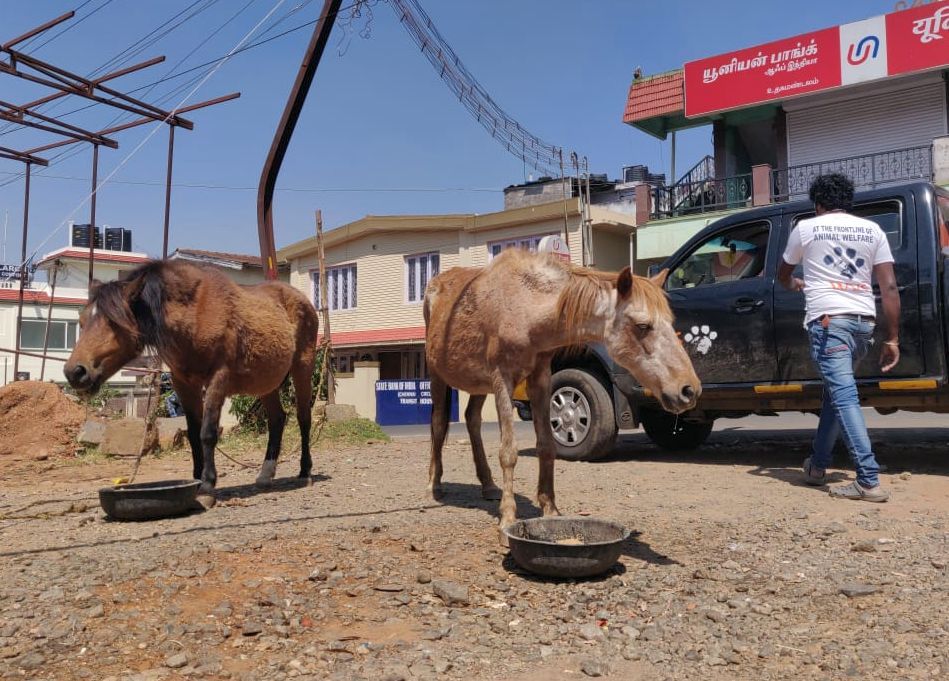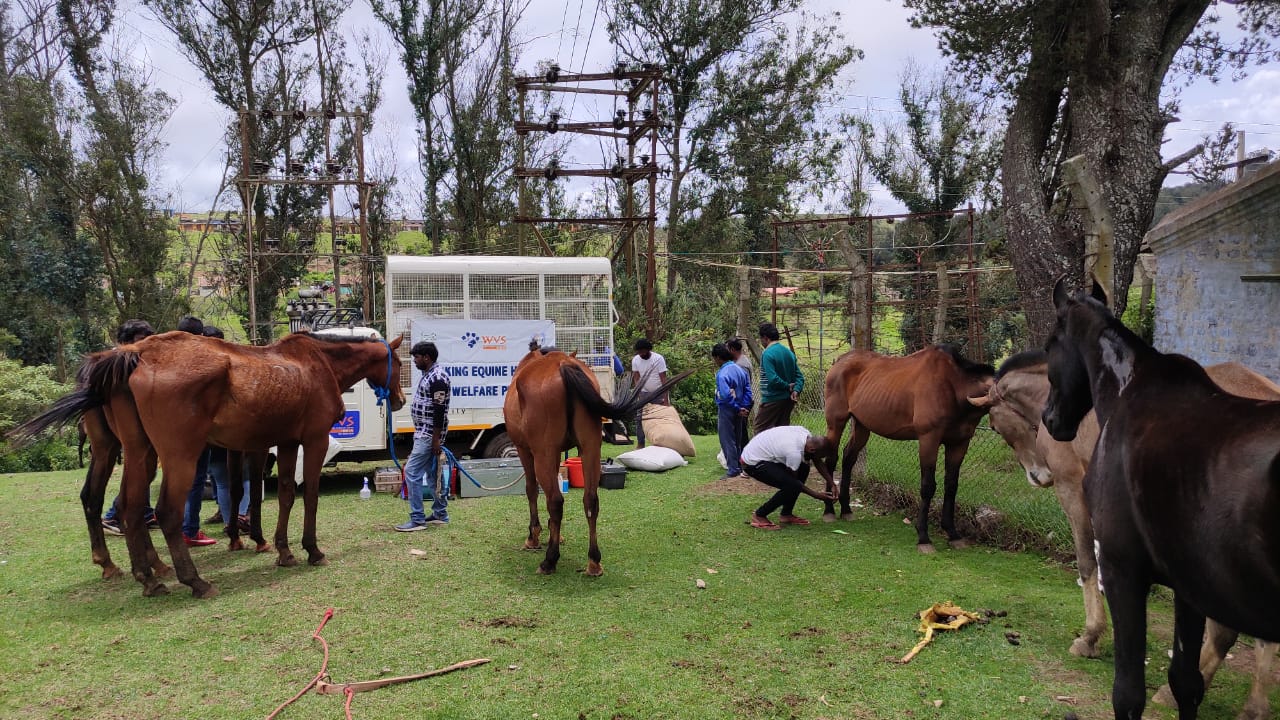The working horse has helped shape our history for thousands of years. Once domesticated, we quickly became indebted to these hard-working animals. They’ve become a critical link in production across several industries, including construction, agriculture, and transportation, and ultimately, accelerated global change. Even today, horses continue to sustain the livelihoods of millions of people worldwide.
In places like India, horses – along with donkeys and mules �– remain the power engines. They work most of their lives on the land supporting farming or on the streets acting as transport for the locals and tourists. Much like their owners, they often work long hours in challenging conditions to take care of their families who rely on them day in day out. Without proper veterinary care – which many owners don’t have access to or simply can’t afford – the work can take a toll on the animals’ welfare.
In India, our team of international and local veterinarians is working to change this.

Free Veterinary Services
In 2013, we assembled a trusty vehicle, veterinary equipment, and supplies, and with the support of Welttierschutzgesellschaft e.V., we began offering our veterinary services for free across the town of Ooty.
By running mobile veterinary clinics, offering training for local vets, and teaching best animal welfare practices to owners, we've been able to change the lives of these working animals, and consequently, the people who live alongside them.

Many of the horses who are brought to our clinics, or we attend to on the roadside, have never experienced basic or routine veterinary care. Health checks, vaccinations, de-worming treatment, and even proper hoof trimming and shoe placement, have significantly improved their health and wellbeing.
The clinics not only provided treatment and care to the working equines, but allow the owners to learn from our experts how to clean a wound, apply ointment, monitor an injury, safely harness their animals, and so much more.

The Impact of COVID-19
In Ooty, an estimated 350 neglected stray horses and ponies roam the area in search of food. The COVID-19 pandemic has only made things worse.
The town of Ooty is a popular destination for travellers, and horse-riding is one way for them to explore the surrounding Nilgiri Mountains. Here, the horses are often the only source of income for their already financially struggling owners. When the pandemic crashed the tourism industry, many owners were forced to abandon the horses on the streets, unable to feed or house them.
Life on the street of India can be dangerous for the animals. Road traffic accidents are a constant and deadly threat, and foraging for food amongst roadside rubbish can lead to serious health issues.
When India went into a national lockdown, and travel restrictions and curfews were put in place, we were issued with travel permits from the government. As an essential service, we were able to aid stray and free-roaming horses, providing them with food and clean water, and attaching reflective collars to their necks, allowing them to be more visible to motorists at night.


The permit has also meant we've been able to attend to distress calls, just like this one – a lame horse roaming the streets. The team immediately responded. On examination, the horse’s front right hoof was warm to the touch and sensitive to pressure. Every step must have been painful for this poor animal.

Every day, for five days, the team returned to assess the treat the horse's hoof. They administered medication to reduce pain and inflammation, and advised the owner that the horses needed complete rest, stall feeding and mild massage of the tendons, as much as possible.

Without the community looking out for one another, this horse would have suffered through the lockdown.
In 2020 alone, throughout the ongoing pandemic, we provided critical support to over 2,000 working equines – treating everything from injuries caused by road accidents, plastic impaction colic from foraging for food, and providing routine and preventative care at our monthly clinics. Your support made this possible.
Animal Welfare in the Classroom
Education is a big part of improving animal welfare in places like India, and for the next generation, it starts in the classroom.
We visit schools in areas with large populations of working horses and donkeys to teach students about good husbandry. In the classroom, we discuss everything from routine vaccinations and de-worming treatment, to access to food, water, and shade. At the end of every lesson, we challenge the children with a drawing competition. They're asked to draw a ‘happy donkey’ and list the welfare practices they’ve just learnt.

Subscribe
This project in India is just one of the many ways we're helping to give working animals, whether it's horses in India, donkeys in Mozambique, or elephants in Myanmar, the best life possible.
Subscribe to our mailing list to get our latest veterinary news direct to your inbox.